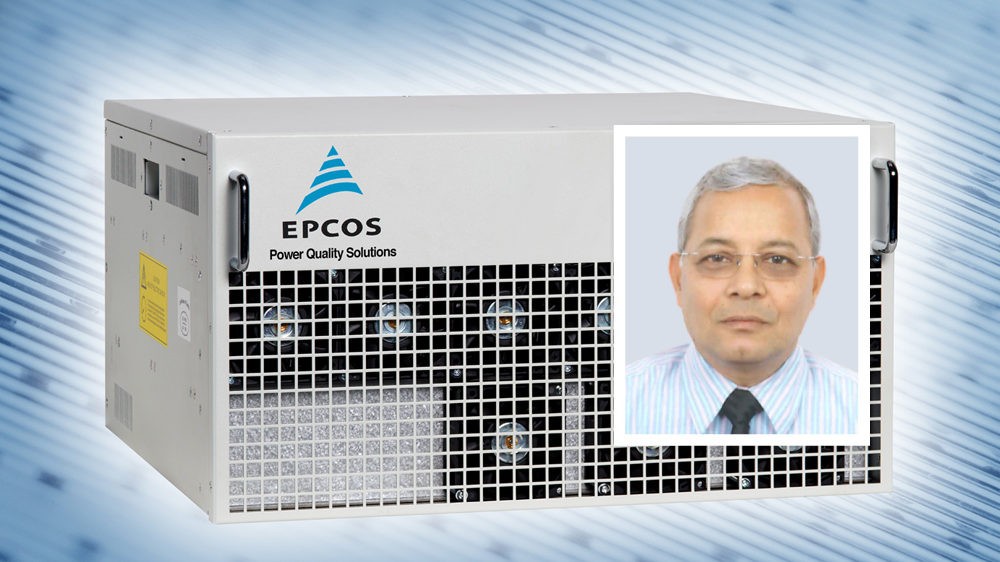EPCOS: Adding Value with Robotics
By EPR Magazine Editorial May 4, 2018 3:40 pm IST
By EPR Magazine Editorial May 4, 2018 3:40 pm IST

By the end of 2018 we will have close to 20 robots completely operational at our facility in Nashik.
N. Balakrishnan, Managing Director, EPCOS India Pvt Ltd, A TDK Group Company
What products do you offer for maintaining power quality?
There are going to be inductive loads in any power network. These inductive loads will result in power loss, and such power losses must be compensated with a capacitive load in what is known as power factor correction (PFC). So, for this process, we offer power factor correction capacitors. TDK is one of the world’s largest manufacturers of such capacitors. In India, the company enjoys a huge market share of more than 33 per cent. We not offer power factor correction capacitors for both the low-voltage (LV) side as well as the medium-voltage (MV) side. With these products and solutions, we primarily support the power utilities and other manufacturing industries. We are now expanding our portfolio in area of harmonic mitigation and steadily moving towards static var generation. So, we provide a comprehensive portfolio of power quality solutions ranging from low-voltage PFC, medium-voltage PFC, switch compensation using capacitors, real-time load switching, static var generators, and active harmonic filters. These products and solutions are offered throughout the country as well as globally from our factories here in India.
How has the advent of technology help in the evolution of manufacturing segment?
In the last 5-10 years, we have witnessed quite dramatic changes within the manufacturing segment. One of the challenges from the technological perspective was that the power technology in use in India was not really the state-of-the-art. But in the last 10 years, the nation’s industry has become aware of the need to use state-of-the-art technologies, and these efforts are being backed by strong governmental support. The availability of funding for the purpose of upgrading the infrastructure and the manufacturing industry is quite phenomenal. Companies and utilities across the country now looking to improve power quality and save energy by utilising automatic PFC capacitors as well at harmonic mitigation technologies such as our PQSine active harmonic filters.
What components are offered by the company in the smart metering segment for smart cities?
What is your Indian manufacturing facility providing to company’s global strategy?Over the years, how do you see the Indian manufacturing has excelled and accepted by global industries?
Several of our global customers have visited our factories and accredited our manufacturing as world-class. For instance, Japanese customers like Daikin, Panasonic, Toshiba, Whirlpool, GE, LG, Samsung and many others have provided high marks in their audits.
Does the company have plans to go for 100 per cent localised manufacturing in future?
As a company, we cannot commit to 100 per cent localisation. Sometimes we must import raw materials in order to more to make products more economical and compatible with market and customer requirements. It’s often about finding a balance between cost and market expectations. We are continuously working to upgrade our manufacturing capabilities. For example, we have invested close to US$ 2 million in upgrading the automation of our processes. In this context, we have already begun installing robotic lines, which probably are among the first robotic lines in operation in India for industrial products like capacitors. By the end of 2018 we will have close to 20 robots completely operational at our facility in Nashik.
We use cookies to personalize your experience. By continuing to visit this website you agree to our Terms & Conditions, Privacy Policy and Cookie Policy.